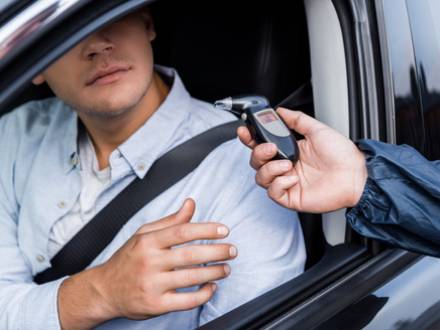Recent Blog Posts
How Do Plea Bargains Work in Illinois Homicide Cases?
 Plea bargains are a common part of how homicide cases are resolved in Illinois in 2026. A recent analysis published by Judicature, a legal journal from Duke University, explains that more than 90 percent of criminal cases in the United States are resolved through plea bargains rather than trials, including very serious felony cases.
Plea bargains are a common part of how homicide cases are resolved in Illinois in 2026. A recent analysis published by Judicature, a legal journal from Duke University, explains that more than 90 percent of criminal cases in the United States are resolved through plea bargains rather than trials, including very serious felony cases.
This means that even murder and homicide charges are often resolved through negotiation instead of a jury verdict. If you are facing these charges, a Cook County, IL murder defense lawyer can help you understand how plea bargaining may affect your case.
What Is a Plea Bargain in an Illinois Homicide Case?
A plea bargain is an agreement where the accused agrees to plead guilty in exchange for something from the prosecution. In homicide cases, this often involves reduced charges or a lower sentencing recommendation.
Criminal Cases and Social Media
 Criminal cases and social media often collide in ways people do not expect. In a 2025 report, the Pew Research Center found that 84 percent of adults in the United States use YouTube and 71 percent use Facebook, showing how deeply social media is woven into daily life.
Criminal cases and social media often collide in ways people do not expect. In a 2025 report, the Pew Research Center found that 84 percent of adults in the United States use YouTube and 71 percent use Facebook, showing how deeply social media is woven into daily life.
As of 2026, Illinois prosecutors routinely review social media activity as part of criminal investigations, even in cases that do not initially involve online conduct. When someone is facing criminal charges, constant online activity can quickly turn into evidence. The reality is that social media posts can be used against you, even when they seem harmless, private, or unrelated to a case.
If you are under investigation or have already been charged, our Chicago, IL criminal defense lawyer can offer crucial guidance.
Is It Possible To Get Out of a DUI Charge in Illinois?
 If you were arrested for driving under the influence (DUI), you will have your day in court. The prosecution will have to prove the charge beyond a reasonable doubt. In Illinois, DUI cases often depend on small details, and those details can make a major difference. Before your first court date, speak with our Cook County, IL DUI defense lawyer to understand whether your case can be challenged.
If you were arrested for driving under the influence (DUI), you will have your day in court. The prosecution will have to prove the charge beyond a reasonable doubt. In Illinois, DUI cases often depend on small details, and those details can make a major difference. Before your first court date, speak with our Cook County, IL DUI defense lawyer to understand whether your case can be challenged.
Does a DUI Arrest Automatically Lead to a Conviction in Illinois?
Being arrested for DUI does not automatically mean you will be convicted. Under Illinois DUI law, 625 ILCS 5/11-501, the prosecution must show you were impaired by alcohol or drugs or had a blood alcohol concentration at or above the legal limit. If the evidence does not meet legal standards, the charge may be reduced or dismissed.
Your Rights When Held Without Charges for a Felony Case
 Believe it or not, the police cannot just hold you indefinitely without pressing any criminal charges. They have to follow strict laws that are designed to protect your rights and the integrity of the case. If you are facing an investigation, an experienced Chicago, IL criminal defense lawyer can help protect your rights from the start and guide you through every step of the legal process.
Believe it or not, the police cannot just hold you indefinitely without pressing any criminal charges. They have to follow strict laws that are designed to protect your rights and the integrity of the case. If you are facing an investigation, an experienced Chicago, IL criminal defense lawyer can help protect your rights from the start and guide you through every step of the legal process.
Can Police Hold You Without Charging You in Illinois?
In Illinois, police may detain a person for investigation, but the law limits how long someone can be held without formal charges. According to 725 ILCS 5/109-1(a), a person who has been arrested must be brought before a judge without unnecessary delay for their first appearance. While Illinois law does not state a specific number of hours, courts have ruled that holding someone for more than 48 hours without a probable cause hearing is generally unconstitutional.
How a Prior Conviction Can Affect a New Battery Charge in Illinois
 If you already have a criminal record, facing a battery charge can be even more complicated. Does the existing record impact the new charge and how the court views you? In Illinois, past convictions can strongly affect how prosecutors handle your case and how a judge decides your sentence. However, you still have the right to challenge the allegations against you. A Cook County, IL battery defense lawyer can help you understand your rights. Together, we can build a strong defense.
If you already have a criminal record, facing a battery charge can be even more complicated. Does the existing record impact the new charge and how the court views you? In Illinois, past convictions can strongly affect how prosecutors handle your case and how a judge decides your sentence. However, you still have the right to challenge the allegations against you. A Cook County, IL battery defense lawyer can help you understand your rights. Together, we can build a strong defense.
What Counts as a "Prior Conviction" for Battery in Illinois?
Under 720 ILCS 5/12-3, battery happens when someone knowingly causes bodily harm to another person or makes unwanted physical contact that is considered insulting or provoking. If you were convicted of this crime or a related charge like domestic battery under 720 ILCS 5/12-3.2, that conviction can affect your new case. The court and prosecutors will look at your history to decide how serious the new charge should be. Even if your previous case was years ago, it could still have an impact. An experienced criminal defense attorney can review your record and help you build a strategy to limit its effect on your charges or sentence.
How Can Illinois Students Fight Sex Crimes Accusations?
 College is often a time for independence, new friendships, and personal growth. When a student is accused of a sex crime, everything can change in the blink of an eye. You may face a criminal investigation and a school disciplinary process at the same time. Working with a Chicago, IL sex crimes defense lawyer can help you protect your rights and your future.
College is often a time for independence, new friendships, and personal growth. When a student is accused of a sex crime, everything can change in the blink of an eye. You may face a criminal investigation and a school disciplinary process at the same time. Working with a Chicago, IL sex crimes defense lawyer can help you protect your rights and your future.
What Happens When You Are Accused of a Sex Crime as a Student in Illinois?
Under Illinois law, criminal sexual assault is defined under 720 ILCS 5/11-1.20, and criminal sexual abuse is defined under 720 ILCS 5/11-1.50. These laws focus on whether there was consent. If someone did not agree or was unable to agree because of intoxication or pressure, the law may view the situation as a crime.
How Can You Challenge Breathalyzer Results in an Illinois DUI Case?
 If you blew over the legal limit during a DUI stop, you still have a chance to fight the charges. Breathalyzer results are not always accurate or reliable. There are actually several legal and scientific ways to challenge those numbers in court. The first step is to talk to an experienced Cook County, IL DUI defense lawyer if you believe your test results were wrong.
If you blew over the legal limit during a DUI stop, you still have a chance to fight the charges. Breathalyzer results are not always accurate or reliable. There are actually several legal and scientific ways to challenge those numbers in court. The first step is to talk to an experienced Cook County, IL DUI defense lawyer if you believe your test results were wrong.
Can You Refuse a Breathalyzer Test in Illinois?
Illinois has an implied consent law under 625 ILCS 5/11-501.1. By driving on Illinois roads, you automatically give your consent to undergo chemical testing during a DUI stop. Of course, the officer also has to have probable cause for an arrest.
What Is Considered Aggravated Vehicular Hijacking Under Illinois Law?
 A charge of vehicular hijacking, often called carjacking, can lead to serious penalties in Illinois. If the situation is more serious or involves certain special factors, the charge can be raised to aggravated vehicular hijacking. This is a Class X felony, one of the most serious offenses under state law. At Law Offices of James F. DiQuattro, our Chicago, IL aggravated vehicular hijacking defense lawyer will help you challenge the charges with the best possible defense strategy.
A charge of vehicular hijacking, often called carjacking, can lead to serious penalties in Illinois. If the situation is more serious or involves certain special factors, the charge can be raised to aggravated vehicular hijacking. This is a Class X felony, one of the most serious offenses under state law. At Law Offices of James F. DiQuattro, our Chicago, IL aggravated vehicular hijacking defense lawyer will help you challenge the charges with the best possible defense strategy.
What Does Illinois Law Say About Vehicular Hijacking?
Under 720 ILCS 5/18-3, vehicular hijacking occurs when someone knowingly takes a vehicle from another person through force or the threat of force. The key detail is that the vehicle is taken directly from a person, not stolen from a parking lot or driveway. For example, forcing a driver out of their car at a stoplight would qualify. However, taking an empty car from a garage would not. Even without other factors, vehicular hijacking is a felony in Illinois. However, the prosecution may try to elevate the charge if they can demonstrate that there were aggravating factors present.
How Police Sting Operations Lead to Prostitution Felony Charges in Illinois
 Police use sting operations to target people suspected of prostitution or solicitation. These undercover operations can lead to serious criminal charges. In some cases, the charges may even be felonies, depending on the facts. If you are facing felony charges related to a sting operation, you need help. A Cook County, IL prostitution defense lawyer will build your case and walk you through the legal process.
Police use sting operations to target people suspected of prostitution or solicitation. These undercover operations can lead to serious criminal charges. In some cases, the charges may even be felonies, depending on the facts. If you are facing felony charges related to a sting operation, you need help. A Cook County, IL prostitution defense lawyer will build your case and walk you through the legal process.
What Is a Sex Sting Operation?
A sting operation is when police use undercover officers to pose as sex workers or clients. They may place fake online ads, send text messages, or arrange in-person meetings. Officers then record these conversations or set up surveillance. Stings often happen in hotels, on the street, or online. While police claim these operations fight crime, they can sometimes cross the line into entrapment.
How Do You Fight Drug-Induced Homicide Charges in Illinois?
 On October 28, 2023, actor Matthew Perry, best known for his role on Friends, died from an overdose linked to ketamine. Nearly two years later, on September 3, 2025, federal prosecutors secured a guilty plea from someone nicknamed the "Ketamine Queen," who admitted to supplying the drugs that caused Mr. Perry’s death. Facing up to 65 years in prison, her sentencing is scheduled for later this year. The case made headlines worldwide and shows how aggressively prosecutors pursue drug-induced homicide charges when a life is lost.
On October 28, 2023, actor Matthew Perry, best known for his role on Friends, died from an overdose linked to ketamine. Nearly two years later, on September 3, 2025, federal prosecutors secured a guilty plea from someone nicknamed the "Ketamine Queen," who admitted to supplying the drugs that caused Mr. Perry’s death. Facing up to 65 years in prison, her sentencing is scheduled for later this year. The case made headlines worldwide and shows how aggressively prosecutors pursue drug-induced homicide charges when a life is lost.
Facing similar allegations in Illinois can be just as devastating. Prosecutors here bring drug-induced homicide cases under some of the toughest state laws in the country. If you or someone you love is charged, having an experienced Chicago, IL drug-induced homicide defense lawyer by your side is the first step in building your defense.
















